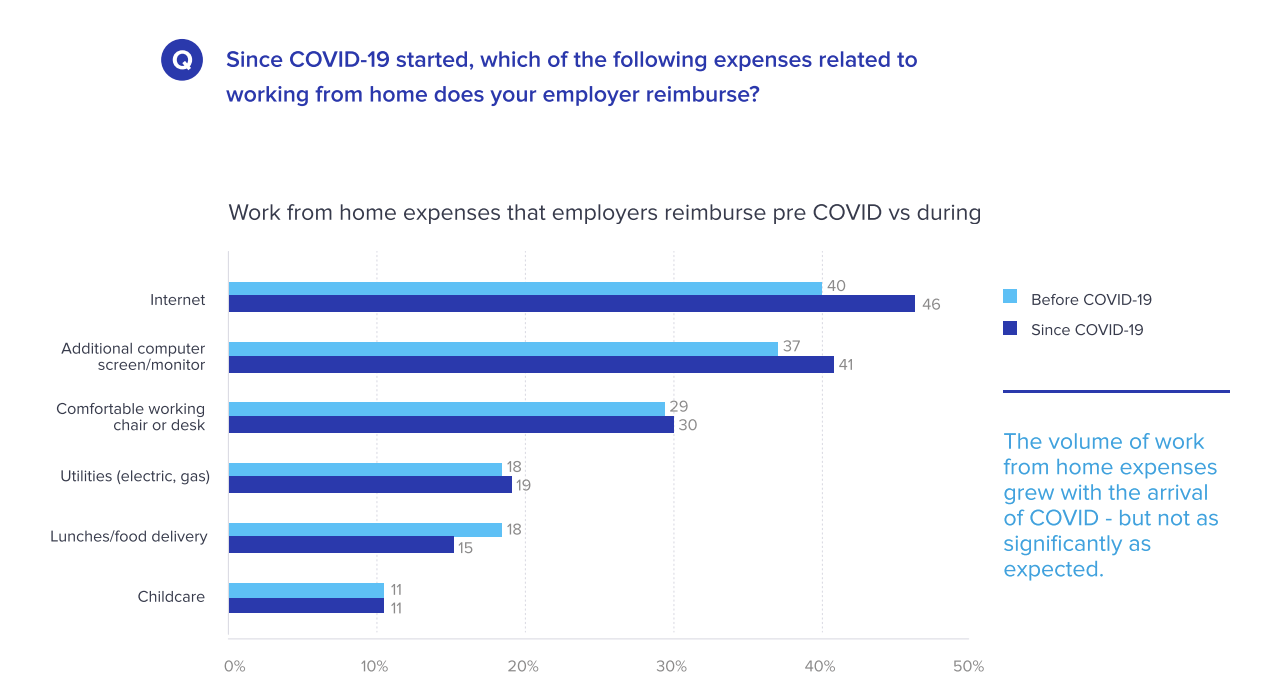Why Freelancers Should Care About Corporate Remote Work Expense Policies
As a freelancer, you can’t often look to big corporations for inspiration. Their systems are different, they have hundreds (or thousands) of employees, and the scale is so much larger than the average freelancer that the comparisons simply don’t match. However, there’s one instance where freelancers should pay attention: remote work expense policies. When the pandemic pushed everyone into remote work that could, many companies responded by changing what employees are allowed to expense.
A new study by Appzen looked into this shift and found 51% of companies updated their expense reports due to COVID. This led to an increase in people claiming expenses, up from 69% to 75%.
“Throughout 2020, organizations have seen one of the most significant shifts in working habits since the advent of the Industrial Revolution. The COVID-19 pandemic brought about a seismic shift known simply as “working from home,” says the report.
Freelancers: plan your own remote work expense policy
In most states or provinces, freelancers are considered business owners. Even if they choose to stay a sole proprietorship or equivalent, that opens up a wide range of tax benefits. As such, freelancers should create their own “remote work expense policy.”
According to the Appzen study, employees have focused on six categories of expenses when it comes to remote work:
- Internet.
- Additional computer hardware.
- Comfortable working chair or desk.
- Utilities like electric and gas.
- Lunches and food delivery.
- Childcare.

Source: Appzen study
This should be a lesson for freelancers, as one study shows 72% of freelancers don’t know what expenses are deductible. Businesses only allow expenses that are considered essential to getting work done. So when an employee submits an expense, the business gets a tax write-off. As business owners, freelancers can claim similar expenses against their own taxes.
Defining a business expense
Broadly speaking, any expense that’s incurred for the purpose of earning income can count as a tax deduction for freelancers. The interesting thing about this definition is that you don’t actually have to earn income for the expense to count. If you spent money on a marketing campaign that didn’t return any revenue, it’s still an expense you can claim. Similarly, buying an office chair so you can run your business from home is a valid expense in most states, even though buying that chair didn’t directly turn into income.
The “sniff test” for whether an expense is valid is to ask yourself two questions:
- If I didn’t have a business, would I have incurred this expense at all?
- Do I use this purchase solely for business expenses or also personal?
If you wouldn’t have incurred the expense at all without a business, chances are it’s a useful deduction. If you use the purchase for personal and business use, you can likely deduct a portion of the expense.
So as companies rejig their remote work expense policies, freelancers should take note. Large businesses spend a lot of money to verify that something they allow employees to expense will also result in a tax deduction for the business. As a freelancer, you play both roles – the employee and the business. So if large businesses are realizing that employee deductions are valid, chances are they could be valid for freelancers as well.
Disclaimer: always seek professional guidance. The information in this article is intended for informational purposes only.
Business & Finance Articles on Business 2 Community
(19)


